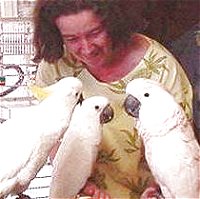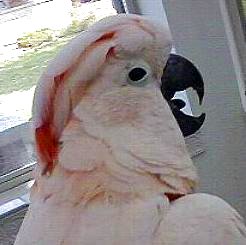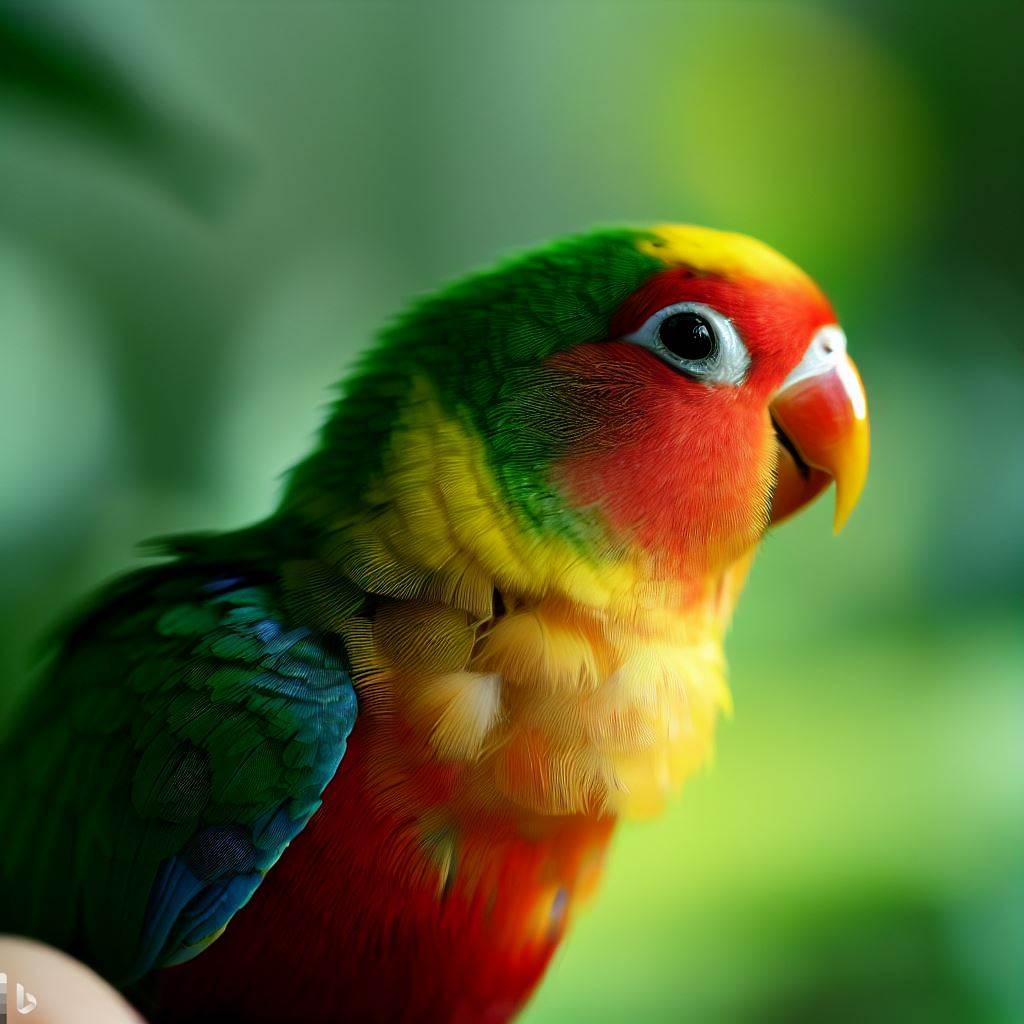“About a month ago, while Jade (a Blue-Crowned Conure) and I were home alone, the song Brown-Eyed Girl came on the radio and I sang it to him, changing it to ‘Brown-Eyed Bird,’ of course! We danced around the house and were generally silly. He squawked in time to the music and had a ball. Well, I was on the computer tonight when Brown-Eyed Girl started playing. Jade started squawking up a storm, then started sounding indignant. It took me a minute to realize that he wanted me to sing to him again. So I picked him up and started singing, dancing, etc. He was in birdie heaven, I think. It surprised me that he remembered it from one dance session!” So wrote Taevia M of her experience singing to her parrot.
Each of your birds should have a special song. A song that is all their own. This song is something they will immediately recognize. It is like a contact call straight to their soul. When they are scared or unsure, you can sing their song to them and they feel comforted. Perhaps you can also build your parrot’s confidence and bravery by singing to them.
One of the principal goals of keeping a companion parrot is to nurture and produce an excellent companion. In your home, your parrot probably views you as a loved flockmate. To hear you sing provides cheer and contentment to your parrot. Watch your parrot’s body language as you sing to him and you may see a definite change in his presentation, to tell you how much he enjoys your gift of song.
Turning on the stereo or radio or television for music will help break the monotony and relieve stress in your parrot. But this is not the same as your personal gift of song.
Songs can be interactive. Interactive songs lead to strong bonds. Parrots sometimes learn to join in with “lalalala” or other actions like crest raising or wing flapping at certain points in a song. My parrots like the song, “He flies through the air with the greatest of ease.” They swing and flap and enjoy some exercise with this song. They laugh after they sing and snuggle with me. Dancing is also interactive, as with Jade and Taevia in the story above.
Because our schedules vary and birds love routine, having their own song helps satisfy their need for “order and organization.” The same tune restores their sense of pattern. They feel all is right in their world from hearing a song routinely.
Songs communicate. Each of my birds have a “night night” special song that tells them it is time to sleep. When riding in the car, I sing and the birds start having more fun and relax. Singing in the shower with them is a special joy. Singing enhances their pleasant experiences and brings them joy.
Many of us sing to our birds, our children, their children, etc. It is our instinct to sing to them. It must be the right thing to do. And it makes us feel better too. The parrot may sense from your song that he/she is loved and protected. Comforting and soothing a parrot is one way to help develop them to their full potential.
In the wild and in our living rooms, birds sing. Their instinct is to sing or call or screech as some people say, but it is melodic and it is song under another name.

In summary, singing songs to your parrot contacts them, contacts us, brings them comfort, signals events like night night, helps them bond, enhances joy of life for both the parrot and us, and restores order to their sometimes jumbled day.
The biggest hindrance to achieving these advantages may be “what would people think.” You are a parrot keeper. You are charged with an awesome responsibility to produce the best companion parrot you possibly can. So close the curtains and when no one is home, start singing to your parrot. You may see your bird’s body language change, telling you how much they love you while you sing to them.

